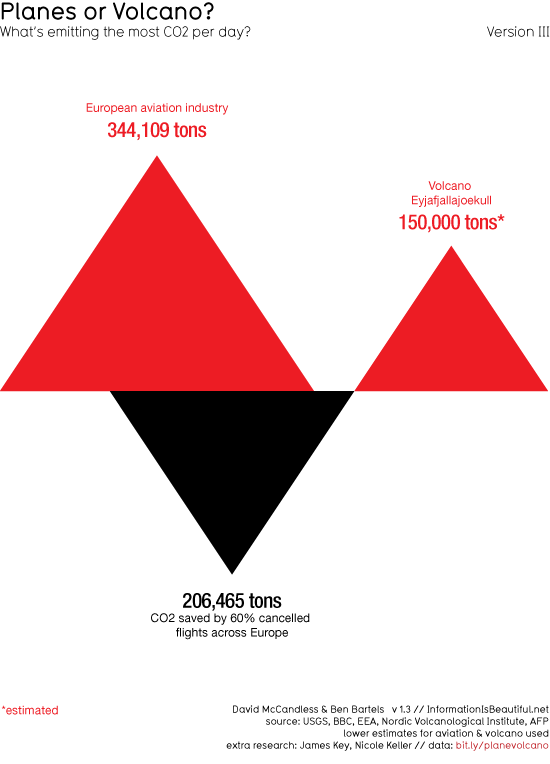This past week the Icelandic volcano Eyjafjallajökull was officially declared dormant. The volcano, which you almost certainly remember from the news, had a big eruption in the early months of this year effectively grounding flights all over Europe.
"This second eruption threw volcanic ash several kilometres up in the atmosphere which led to air travel disruption in northwest Europe for six days from 15 April and in May 2010, including the closure of airspace over many parts of Europe,"
Wikipedia
writes.
And you also probably know that volcanic eruptions produces carbon dioxide. So what kind of effects did Eyjafjallajökull have on our climate? Well. Not much it seems.
"This is not the big climate changing eruption that some people seem to think it is," said Mike Burton from Italy's National Institute of Geophysics and Vulcanology.
"At the moment, the eruption cloud reaches around 22,000 feet (7km)," says Anja Schmidt from the School of Earth and Environment at the UK's Leeds University. "That's high enough to affect aviation but is unlikely to be high enough to have a strong effect on the climate system."
Because of the mass-grounding of flights in Europe the extra CO2 produced by the volcano actually helped to lower the total amount of greenhouse gas emissions during this period. The Guardian writes:
"A larger effect on the atmosphere, though still small in global terms, comes from the mass-grounding of European flights over the past few days. According to the Environmental Transport Association, by the end of today the flight ban will have prevented the emission of some 2.8m tonnes of carbon dioxide since the first flights were grounded.
The volcanic eruption has released carbon dioxide, but the amount is dwarfed by the savings. Based on readings taken by scientists during the first phase of Eyjafjallajokull activity last month, the website
Information is Beautiful
calculated the volcano has emitted about 150,000 tonnes of CO2 each day."
Richard Black from the BBC News concludes that the "eruption would not have any effect on weather and climate" and that:
"[...]its daily CO2 output was only about one-thousandth of that produced by the sum total of humanity's fossil fuel burning, deforestation, agriculture and everything else. In fact, the extra CO2 produced from the volcano is probably less than the volume "saved" by having Europe's aeroplanes grounded."
So it seems the Icelandic volcano managed, if only for a few days, to reduce the impact aviation has on our climate - something which our politicians haven't managed yet.



Recommended Comments
Join the conversation
You can post now and register later. If you have an account, sign in now to post with your account.